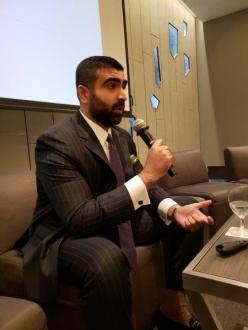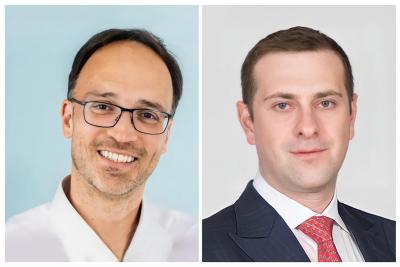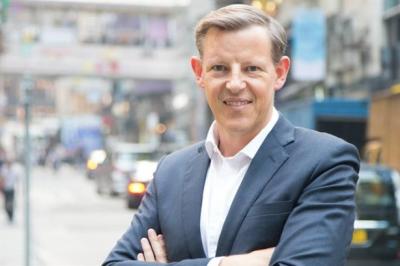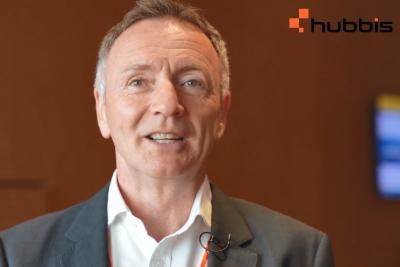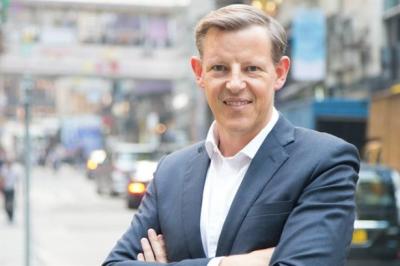Strategy & Practice Management
Henley & Partners: Working with Asia’s HNWIs and Wealth Managers to Promote Investor Migration
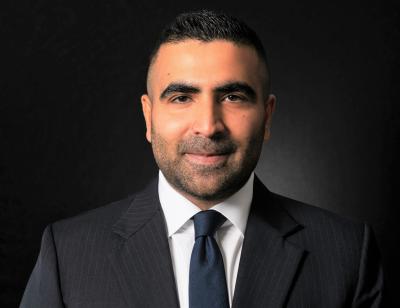
Nirbhay Handa of Henley & Partners
Jul 3, 2019
Nirbhay Handa, Henley & Partners, Country Head - India, Sri Lanka & Bangladesh and his colleague Rory McDaid, Client Advisor, addressed the audience at the Hubbis Asian Wealth Management Forum to highlight the many appeals of secondary citizenship or residency around the world. The story they recounted is very compelling for so many of the world’s wealthy, with an estimated 34% of the globe’s HNWIs already holding one of these alternatives. And as the world’s leading investment migration consultancy, they said, Henley is ideally positioned across Asia as experts on the programmes on offer and experts at working with Asian HNWI clients and families to achieve their goals.
Handa began the talk by reporting that every day we hear about a political or a military crisis around the world. “Three weeks back it was Sri Lanka, yesterday it was Jakarta,” he noted. “So, people need an insurance policy. At Henley & Partners we work with wealthy families and individuals who are looking to acquire an alternative citizenship or a residence through investment which could serve as an insurance policy in times of need.”
He then ran through the other key reasons. “The second primary reason families reach out to us is to achieve travel and settlement freedom” he explained. “For example if you hold a Bangladeshi passport, you can travel to only 41 countries without having to apply for a prior visa while with a Cyprus or Malta passport you can travel to more than 180 countries and also settle anywhere in the European Union (EU). So, travel and settlement freedom are important motivators for getting an alternative citizenship and therefore passport of another country.”
Finally, lifestyle benefits are also a key reason a client may consider an alternative citizenship. He reported, “if you look at the developing markets, healthcare and education are not particularly great. So, a client maybe keen to acquire a citizenship or an alternative residency of country that offers all these key advantages.”
Working with wealth managers
Henley works closely with the wealth management community. “With private bankers, we strive to build a relationship based on reciprocity,” he told the delegates. “We deal with high net worth clients day in and day out, and we are always on the lookout for a private banker whom we feel would be a good fit for families that we work with who might need private banking services."
Working with Henley
And as to working with Henley, Handa explained that the team always works from the outset to make sure they are the right firm to really help the client and then to ensure both parties build trust and understand each other.
“We have in-depth experience of our private clients needs and with working closely with the governments on their programmes,” he added. “There is no other company that has the knowledge of both sides of the equation as deeply as Henley.”
“We have helped various governments globally to structure their Citizenship-by-Investment (CBI) programs. We are the concessionaire for the Maltese government and designed the CBI program for them which is the benchmark within the investment migration industry. Similarly, we have had multiple government engagements with countries including the UK, Switzerland and Austria in Europe; Antigua and Barbuda, Saint Kitts and Nevis and Grenada in the Caribbean; Thailand in Asia; and most recently we were mandated to structure the CBI Program for the Republic of Moldova.
Residency, or citizenship
There are key differences, Handa reported. “I think most people would be aware, once you have citizenship, you have the right to vote, you can pass your citizenship to future generations. While with residence, it depends on the conditions as to whether you can work, and while residence might lead to citizenship, you cannot pass down residence to future generations and family members.”
With citizenship, the client obtains a passport of that country and is protected under the constitution, and they have the right to vote. Citizenship also confers the same nationality on children and their offspring.
The programmes Henley promote
Handa’s colleague Rory McDaid, Client Advisor for Henley, took the microphone, beginning first with some of the more important Caribbean programmes on offer, aided with an interesting video presentation.
The Caribbean offers excellent value for money and many key benefits. Caribbean CBI programs are a lower cost alternative, and for between USD100,000 to USD200,000, an Asian HNWI would be able to bring his or her whole family in.
The Caribbean option is also popular due to its elevated travel freedom. Compared to countries in Asia, such as India, Bangladesh, Sri Lanka, Thailand, the Philippines and many others, Caribbean passports offer visa-free travel to more countries. Grenada, for example, offers a visa waiver to the Schengen area as well as a visa waiver to China, so this has been very popular for people in the region who do business in China.
Henley currently focuses on four countries in the Caribbean that offer the most appropriate and cost-effective packages: Grenada, Antigua and Barbuda, Saint Kitts and Nevis and Saint Lucia.
Grenada
McDaid highlighted certain key advantages of Grenada, including efficient processing time, low capital outlay, visa-free travel to more than 140 countries including China, an E-2 Investor Visa Treaty (which has some advantages for the US), zero wealth, gift, inheritance, foreign income or capital gains tax and finally citizenship by descent. Grenada requires either a contribution to the National Transformation Fund starting from USD150,000 for a single applicant or purchase of government-approved and designated real estate with a value of at least USD220,000. If an investor chooses the real estate option, there is an additional government flat fee of USD50,000. There are also other smaller fees associated with these applications.
He noted also that the Grenada option is one of the most compelling citizenship programmes in the Caribbean, as well as enjoying advantages such as the largest offshore American medical university in the world.
The European options
McDaid then turned the spotlight on Europe, which is generally a more capital intensive option than the Caribbean. First up was EU member Cyprus, which is very popular in Asia today. It requires an investment of EUR2 million into residential real estate, which you hold for five years.
Cyprus
Right now, he advised, there is a cap of 700 applications per year, and that limit will likely be met in Q4 this year.
The country, he explained, has plenty advantages and offers the opportunity for individuals to achieve tax residence through only spending 60 days per year in the country itself. It offers a 12.5% flat corporate tax rate and is one of the most tax effective jurisdictions in Europe.
There is further appeal in a new casino development, that will be Europe’s largest integrated casino resort, due to open in 2021. With the Macau-based owner of City of Dreams as principal, the prospects for economic and property expansion are significant.
Malta: Prestigious and in the EU
He turned to Malta, and with the aid of a video, explained it is a beautiful island with an excellent education system and a wonderful history.
Malta is the only European citizenship-by-investment programme currently endorsed by the European Commission and nationality is protected by European law.
It is an exclusive programme, as has the most stringent due diligence procedures and applications are capped to a total of 1,800.
The process requires a non-refundable contribution of EUR650,000 to the government for the main applicant, plus EUR25,000 for their spouse and EUR25,000 for each applicant under 18 years old. The applicant must buy a property in Malta for at least EUR350,000 or rent a property for five years for at least EUR16,000 per year as well as invest at least EUR150,000 in a Maltese financial instrument for five years. Applicants must also hold private health insurance. It is generally a 12-month process before citizenship documents and passports are issued.
Austria is another country that Henley has recently begun working more closely with. With an entry point of either a EUR3 million donation or a EUR8 million investment, it is definitely an option only for the very wealthy to consider. And it takes time - up to two years for the process to run its course.
Looking further east
He then mentioned two other programmes that have been introduced, Moldova and Montenegro. They are Eastern European countries not yet part of the EU, but they could be in the future. They are fairly cost competitive with the Caribbean examples and provide similar visa-free access to the Schengen.”
Moldova, a low-cost alternative
Moldova offers visa-free travel to 121 countries and is also a Commonwealth of Independent States (CIS) country. This means that Moldovan citizens can go to Russia, Ukraine and Belarus without a visa. The citizenship programme is very efficient and requires a donation of EUR100,000, plus extra for dependents up to a total of EUR155,000 for a family of five or more. There is also a government contribution for the license of EUR35,000 per applicant.
A major benefit of Moldova is its strategic location. It has full Schengen access in terms of travel rights, but also looking eastwards has full travel access to all the ex-Soviet countries. The economy has been doing very well over the past three or four years, growing at a rate of 4% to 5%. There has been a lot of Chinese inbound investment through the Belt and Road Initiative, and the Moldovan government have really been putting a lot of focus in terms of new technologies, entrepreneurship and start-ups being created there.
The Residency Programmes
McDaid handed the microphone to another client advisor for Henley, Ms. Yelena Zemtsova, who explained that she is Russian and covers all the Russian speaking clients. “Clients can also acquire residence through investment and the difference when compared to CBI is that this is not a passport. Acquiring residence rights in a country like Portugal and Greece, also allows visa free travel in the Schengen area. This is quite interesting for people coming from countries which do not allow dual citizenship, such as India; if a HNWI doesn't want to give up his Indian passport, he can acquire Greek residency and be able to travel freely within the European Schengen area.
With that, she gave brief details highlighting the key countries that Henley covers in terms of residency, including the United States, Canada, Australia, New Zealand, UK, Switzerland, and the most popular currently, which are Portugal, Greece, and Thailand.
“In Portugal, for example,” she reported, “you can get your residency if you invest EUR500,000 into real estate. For Greece, it is just EUR250,000, not a lot of money for the benefits of a residency card that allows you to ease of travel within the Schengen area. For Thailand, the government application fee ranges from USD16,000 to USD60,000 depending on the length of the residency.”

Group Head of Business Development at Henley & Partners
More from Nirbhay Handa, Henley & Partners
Wealth Solutions & Wealth Planning
The Rise of Global Citizens from Asia: Trends and Developments in Investment Migration
Latest Articles


